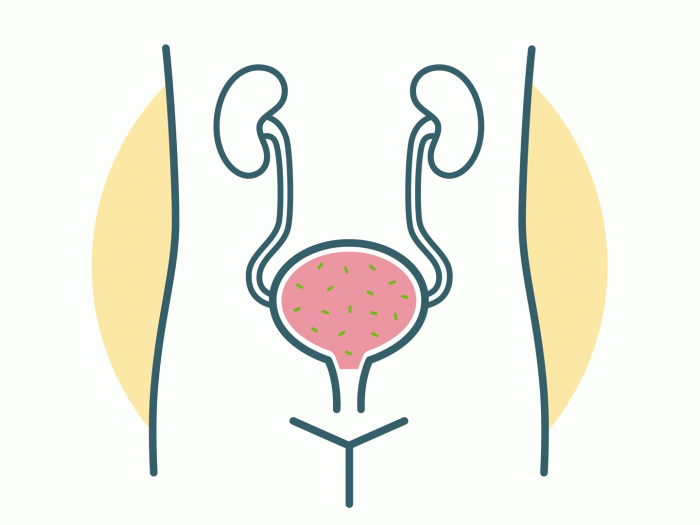Primary care providers across Michigan can turn to psychiatrist-run program to get help with managing their patients’ behavioral health conditions
10:45 AM
Author |
When a pregnant woman or new mother comes to see Shimia Isaac, D.O., at her family medicine practice, and the door closes on the exam room, sometimes it all comes tumbling out.
Depression. Anxiety. Violent, rapid mood swings. Traumatic memories. Mental health struggles they’ve told no one else about — or they thought were normal in pregnancy or the first months of motherhood.
There’s no time to lose in getting them the help they need, whether it’s medicine, talk therapy, suicide prevention planning, or all three.
But deciding what to do, especially when it comes to medicine for someone who is pregnant or breastfeeding, can be tricky. Finding local therapists and support services, especially for patients in rural areas, can be even trickier or nearly impossible.
That’s when Isaac — like more than 3,200 doctors and other primary care providers across Michigan — turns to a service called MC3. Based at the University of Michigan Department of Psychiatry, MC3 acts like the “Phone-a-Friend” option on a popular game show.
By telephone or via a secure online form, providers can turn to U-M psychiatrists for rapid and confidential advice on treating a patient’s mental health needs. Many of the patients are in crisis, and from areas of Michigan that lack enough local mental health providers.
“It’s a psychiatry consultation for primary care providers who are providing care for those who have mental health needs, particularly preconception patients, pregnant patients, postpartum patients, and children, adolescents and young adults up to the age of 26,” said Isaac, who practices in Lansing and has used the MC3 service for years.
“I feel it has definitely helped me better serve my patients, because though I have knowledge of mental health disorders and medications to use for them, there are still times where I feel that I need a second opinion. It’s kind of like having someone walk alongside you, to help guide you through.”
It’s critical to try to leverage some of the expertise that we have at U-M and to get it into all Michigan communities.
Access to specialists
MC3 gives doctors, nurse practitioners, physician assistants and certified nurse midwives access to the program’s behavioral health consultants. These staff, including trained social workers and behavioral health specialists, help providers navigate nearby resources.
MC3 also offers all providers updated medication reference guides, and free online education programs through a partnership with Michigan State University that helps primary care providers keep their knowledge current.
Funded by the state of Michigan for the past 10 years, MC3 is growing, with thousands of consults and education sessions a year. About 95% of the time, consultations with MC3 have kept patients from needing a higher level of mental health care. Psychiatric specialists are in especially short supply in Michigan. In fact, more than half of Michiganders live in areas that have too few mental health providers to keep up with demand.
Smartphone therapy
Even in areas with more providers, MC3 is trying something new: Bringing a therapy encounter directly to the patient’s own smartphone immediately after a pregnant patient or new mother answers a digital questionnaire in a way that might indicate mental health problems.
It’s a service funded by the state’s Healthy Moms, Healthy Babies program and builds on a digital mental health screening service called HT2 that’s available to any Michigan clinic that serves pregnant patients.
Clinics in southeast Michigan can offer real-time chats, text sessions or video visits with therapists to their pregnant patients who screen positive for mental health concerns on the HT2 tool. The pregnancy provider can see notes from the discussion to guide care.
“Our motto is we are here for everyone who works with women in pregnancy and postpartum, so that the moms feel healthier, that the families are healthy and that the kids are healthy,” said Maria Muzik, M.D., M.S., the psychiatrist who serves as MC3’s perinatal director. “MC3 lets us take the valuable lessons learned from evidence-based treatment approaches and package them so that a large number of patients can be served.”
MC3’s service started with a focus on children and teens. Pediatrician Lia Gaggino, M.D., based in Kalamazoo, was one of its earliest users. Before the pandemic, she says, a large percentage of children’s primary care visits involved mental or behavioral health concerns. It’s only grown since then, she says.
“It might be struggling in school. It might be temper tantrums, depression, anxiety, chronic pain conditions like chronic headaches, chronic stomach aches. Mental health just wraps into all of that. You can’t separate the emotion from the person,” she said. “MC3 is a game changer. Honestly, my whole prescribing behavior changed for the better because of MC3, because I had somebody that was an expert guiding me.”
When it comes to mental health concerns in primary care, Gaggino said, “We’re not just seeing easy cases. We’re seeing very complicated behavioral health conditions.”
Crisis in children’s mental health care
Sheila Marcus, M.D., remembers being surprised by what primary care providers were handling when she and other child and adolescent psychiatrists at Michigan Medicine, U-M’s academic medical center, got MC3 off the ground in 2012.
“Many people now realize that we really have a crisis in children’s mental health care. We have children who are waiting days, sometimes weeks in emergency rooms waiting for psychiatric inpatient beds,” she said. “In my 40-year career, I have never seen lines so long for outpatient care. It truly is catastrophic. Things were really bad before the pandemic, and the pandemic moved things from bad to worse.”
No matter where providers and their patients are located across Michigan, MC3 can help.
Marcus vividly recalls helping one provider make a treatment plan for a young patient having suicidal impulses who lived on an island in the Great Lakes off the Upper Peninsula and couldn’t get to a hospital during a winter storm.
“It’s critical to try to leverage some of the expertise that we have at U-M and to get it into all Michigan communities,” she said. “About 98% of the patients that we serve are not in the care of a psychiatrist during the time that we’re consulting on them. So we’re providing access to care for an overwhelming majority that are not otherwise getting mental health care.”
Primary care providers and psychiatric providers interested in enrolling in the MC3 program, which has no cost to providers, should begin by filling out this form.
Live your healthiest life: Get tips from top experts weekly. Subscribe to the Health & Wellness newsletter by Health La
Headlines from the frontlines: The power of scientific discovery harnessed and delivered to your inbox every week. Subscribe to Health Lab’s Research & Innovation newsletter
Like Podcasts? Add the Michigan Medicine News Break on Spotify, Apple Podcasts or anywhere you listen to podcasts.

Explore a variety of health care news & stories by visiting the Health Lab home page for more articles.

Department of Communication at Michigan Medicine
Want top health & research news weekly? Sign up for Health Lab’s newsletters today!




